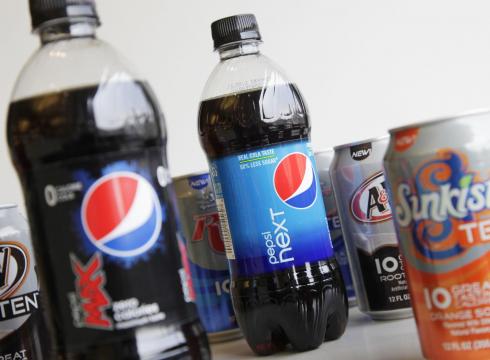Cultivated in China to sweeten tea, Siraitia grosvenorii could rescure the U.S. soda industry valued $8 billion.

Siraitia grosvenorii is an herbaceous perennial vine of the Cucurbitaceae (gourd) family, native to southern China and northern Thailand. The plant is cultivated for its fruit, whose extract is nearly 300 times sweeter than sugar and has been used in China as a natural low-calorie sweetener for cooling drinks, and in traditional Chinese medicine to treat diabetes and obesity.
Some experts believe that this fruit could be the ingredient soda makers have sought for decades: a natural product with great taste and no calories."Someone figures this out and gets a taste that is low-calorie and natural, it could really be a silver bullet that catapults that company ahead," said an analyst at Bernstein.
Consumers, increasingly be focused on the health risks of artificial sweeteners, are choosing uices, teas and naturally sweetened lemonades rather than diet soft drinks.
Five years ago stevia, a low-calorie sweetener made from the leaves of a Paraguayan plant, was heralded as an ideal natural sweetener. But it has had only limited success in the marketplace.
Coca-Cola Co uses stevia in 45 products in 15 countries, including in Coke Life, a low-calorie alternative available in Chile and Argentina. PepsiCo uses stevia in Pepsi NEXT, a low-calorie drink it sells in Australia and France. But customers have complained that stevia's bitter aftertaste alters the sodas' flavors.
Now, some beverage manufacturers are pinning their hopes on monk fruit, which is already used in protein shakes, snack bars and brownies.
Coca-Cola, which uses Siraitia grosvenorii in its Core Power protein drink, said it is exploring ingredient options but would not confirm that Siraitia grosvenorii is among them.
The FDA approved Siraitia grosvenorii for consumption in 2010, and the fruit has no reported adverse side effects.
Extracting sugar from monk fruit is a long and arduous process that further increases costs.
Meanwhile, Chinese law preventsSiraitia grosvenorii seeds and genetic material from leaving the country, according to BioVittoria, confining production to China.
written by Nicolas Yang





